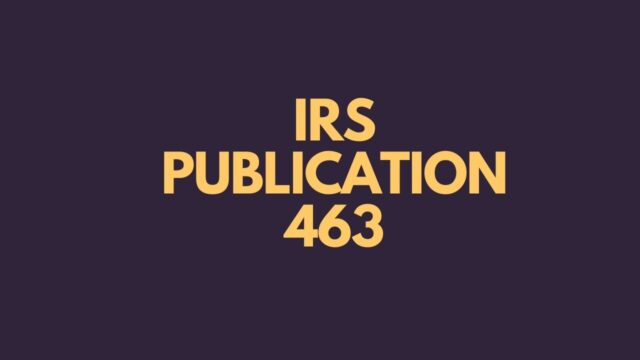
If you own a business, you may want to study Publication 463. This document contains information about deductions for qualified business expenses. You can also take advantage of tax breaks on entertainment and car expenses. This publication can help you understand the requirements for calculating tax deductions. Read on to learn more. Here are some of the most important facts about this publication. It is important to read it carefully and use it to your benefit.
Tax deductions for business-related travel, meals, entertainment, gifts, and car expenses
While many of these expenses are personal, others are business-related. In general, you can deduct 50 percent of business-related travel and entertainment expenses. Meals and entertainment expenses must be for a business purpose. The purpose cannot be for personal or social use. You must have substantial discussions for the event to qualify. In addition, car expenses are deductible.
Taking a business trip can be a lucrative proposition, but not every expense is tax-deductible. While meals eaten at a restaurant may be tax-deductible, they are not deductible unless the meals are directly related to the business purpose. The IRS views meals consumed while traveling as personal expenses, and therefore not eligible for business-related deductions.
If you are travelling for business purposes, you can deduct your meals, accommodations, and entertainment costs as long as they are related to the conduct of your trade or business. If you travel by plane or train to a conference, you can deduct the actual expenses if they were incurred as a result of business activity. However, you cannot deduct expenses for travel to a family home.
Other deductible business travel expenses include transportation to and from a business meal, public stenographers’ fees, computer rentals, and operating a house trailer. While most meal expenses are only 50% deductible, some are 100 percent deductible. You should keep all receipts, and note whether or not the meal is related to business.
Requirements for accurate recordkeeping
Taxpayers often abuse travel and entertainment expenses. Whether they are gifts or entertainment, these expenses have very specific recordkeeping requirements. Publication 463 explains these requirements. Employers should maintain spreadsheets that show when and where employees are traveling for business purposes. They should also note the purpose of any entertainment. In small businesses, it may be sufficient to write the purpose on the back of the receipt.
Electronic storage and ADP systems may qualify for exemptions. Taxpayers must be able to access electronically stored records and reproduce machine-sensible records, which are data in an electronic format for computer use. To comply with the requirements of Section 6001, taxpayers must provide the hardware, software, personnel, and documentation necessary to produce and retain these records. They may not be subject to agreements that restrict IRS access to their storage systems.
The IRS Publication 463 contains a wealth of information on expense deductions. Employees should seek employer reimbursement for all business expenses to eliminate the need for expense deductions. Further, employees should avoid personal expenses when possible. Further, they should seek reimbursement from their employer when they incur business expenses. Depending on the nature of the business, this can help eliminate the need to claim a business expense deduction.
Reporting guidelines for self-employed
The IRS has published a set of reporting guidelines for the self-employed. You can find this guide as a printable version. This guide is not an official position or pronouncement of the Service. It is current as of the revision date, but changes may have occurred since the guide was last revised. You should not rely on it for technical accuracy after that date. It is not considered legal advice and should not be relied upon as such.


































